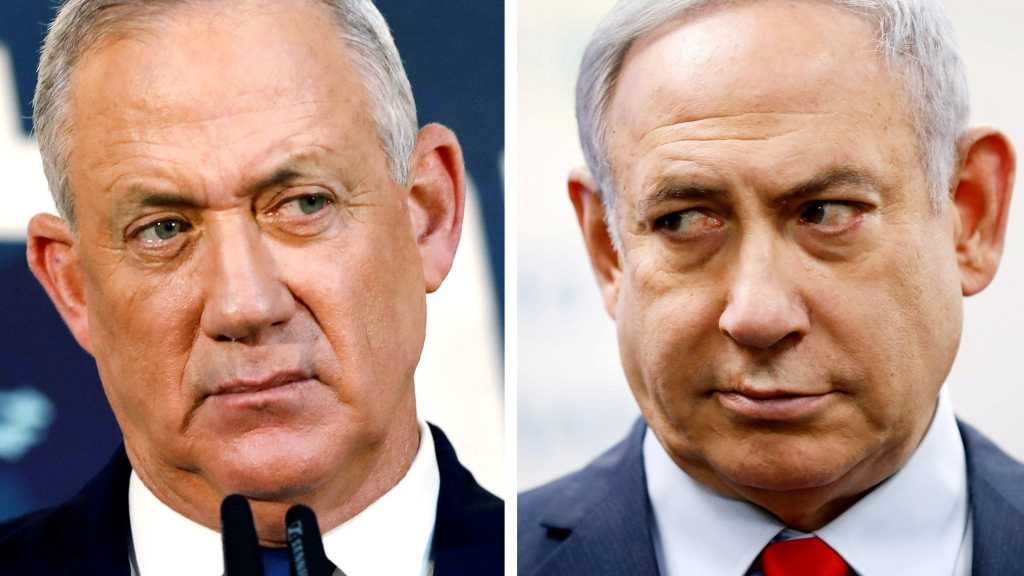
The "Israel" Lobby’s Limits, Norman Finkelstein Interview Part II

Source: crossingthecrescent.com, 28-09-2008
Norman Finkelstein is one of the world's most outspoken and tenacious scholars on the 'Israel'-Palestine conflict, and a fierce critic of the way 'Israel's' supporters try to wield the memory of anti-Semitism as a baton to beat up on those who criticize the country's well-documented atrocities.
Author of "Beyond Chutzpah: On the Misuse of Anti-Semitism and the Abuse of History," along with "Image and Reality of the 'Israel'-Palestine Conflict" and other books, Finkelstein was hailed by a leading authority of Holocaust studies, the late Raul Hilberg, for his "acuity of vision and analytical power," and by prominent 'Israeli'-British historian Avi Shlaim as "as a very able, very erudite and original scholar."
In 2007, Finkelstein was denied tenure at DePaul University because of an intimidation campaign spearheaded by Harvard professor Alan Dershowitz, whose book, "The Case for 'Israel'," was pilloried by Finkelstein as blatant plagiarism of an earlier work, Joan Peters' "From Time Immemorial," which, in turn, was long ago exposed as a hoax.
In our hour-long phone interview on Sept. 14th, Finkelstein discussed a broad range of topics, including Gaza, the paralysis gripping the Arab world, and the reach and the limits of the 'Israeli' lobby. He reflected on his teaching career ("I'll almost certainly never teach again"), his pursuit of self- improvement, and the "battery of humorless lawyers" who vet his printed works, which frequently combine painstaking research with searing polemics. He also talked about his raging battles with Alan Dershowitz, who once mangled Finkelstein's words to claim that he called his mother, a Holocaust survivor, a Nazi collaborator. Finally, acknowledging the consequences of his intellectual activism ("You speak out, you pay a price"), Finkelstein spoke about the meaning and impact of his scholarship.
Below is Part Two of an edited transcript of our interview, presented as four parts.
The 'Israel' Lobby's Limits, the Relevance of Zionism, & Jewish-Muslim Relations
Levesque-Alam: Turning to more domestic reflections on 'Israel' and the role of Zionism-the publication of the Walt/Mearsheimer book on the pro-'Israeli' lobby really gave that kind of critique of 'Israel' and the lobby an official or "prestigious" face, and some people have said more political space has opened up to discuss the subject.
But on the other hand, at the latest AIPAC convention, there were 300 congressmen and 3 presidential candidates on hand to pay their respects, if you will, to this lobbying arm. Do you think political space has really opened up to discuss this subject without one being smeared as an anti-Semitic?
Finkelstein: You have to make a distinction between the popular level and the electoral level. At the popular level it's quite a big difference now as compared to say a decade ago in terms of the ability to criticize 'Israeli' policy and to reach people. It's not difficult at all now on the popular level. If you have public meetings and so forth there's a very receptive, or potentially receptive, audience out there. Jimmy Carter's book Palestine Peace not Apartheid showed this. The 'Israel' lobby called him an anti-Semite, Holocaust-denier, supporter of Nazis and supporter of terrorism. His book still wound up at the top of the bestseller list. But the electoral level is not just about votes, it's crucially also about money; those with lots of money get a better hearing. At the electoral level it remains quite difficult. We haven't yet been able to translate popular feeling into an electoral mandate. That's not unusual. You have in the United States, for example, overwhelming popular support for gun control. But at the electoral level, because of a well-organized lobby, you're not able to translate the popular feeling into an electoral mandate. That's also true of health care and myriad other issues.
Levesque-Alam: Some Muslims, in my view, anyway, have what I would categorize as a somewhat unhealthy obsession over the power and mystique of the 'Israeli' lobby. But there does seem to me to be a valid concern that if these lobbying arms are pushing for certain policies, say, war in Iran, and this actually takes place, don't you think it would create a kind of dynamic where America becomes so entrenched in wars in the Muslim world, that 'Israel' ultimately is seen as an indispensable outpost, and through a sort of self-fulfilling prophecy, becomes a great ally or unique ally whose role is considered indispensable?
Finkelstein: There is much misunderstanding about the scope and reach of the 'Israeli' lobby. In my opinion the 'Israel' lobby has a significant impact on U.S. policy in the 'Israel'-Palestine conflict. U.S. elites do not derive any advantage from the occupation; they would be perfectly happy if tomorrow 'Israel' announced that it accepts the international consensus and will withdraw to the June 1967 borders. The reason U.S. elites don't press harder for such a settlement is the lobby.
But when we come to broad regional issues such as Iraq, Iran, Saudi Arabia, it's not the lobby that's the driving force. It's U.S. policy. You can say U.S. policy is misguided and you can say that once U.S. policy has been decided, the lobby plays a useful role in drumming up public support. But the notion that somehow Cheney and Rumsfeld were duped or coerced by the lobby into waging a war in Iraq contrary to the U.S. "national interest" is neither on its face credible nor supported by the available documentary record.
Levesque-Alam: In an interview I did with you about four years ago for Left Hook, I asked you about your description of Zionism as a response to and a reciprocation of Gentile anti-Semitism. And I asked you about the sustainability and appeal of Zionism, and you said, "it's an interesting question that would require a subtle answer," and you went on to catalogue some positives like the revival and preservation of the Hebrew language and then of course some of the negatives.
Given that you've been working on a new book on American Zionism, do you have new insights about the viability of Zionism and the future trajectory or trajectories that are available-
Finkelstein: If we are serious about trying to resolve the conflict, we should not get sidetracked by abstract ideological questions. We should take Zionism as an ideology out of the debate. Rather, we should focus on political issues. The right question is not, "Are you now or have you ever been a Zionist." The questions should be, "Do you support the demolition of homes and torture?" "Do you support Jewish-only roads and Jewish-only settlements?" "Do you support a political settlement embraced by the entire world apart from the U.S., 'Israel' and some South Sea atolls?"
Levesque-Alam: From a "pragmatic" 'Israeli' viewpoint, or at least what would be considered pragmatic by 'Israeli' leaders, given that the country's leadership places so many eggs in one basket, basically onboard with the American "war on terror", what kind of long-term options does 'Israel' have to create a secure Jewish existence and a lasting peace with neighbors? Does this basically involve adhering to international law and the international consensus, or are there specifics beyond that?
Finkelstein: The possibility exists for a reasonable settlement with the Palestinians along the June 1967 borders and a "just resolution" of the refugee question. But if 'Israel' continues to conceive itself as, and play the part of, an outpost of the U.S. in the Arab-Muslim world, even if the 'Israel'-Palestine conflict were resolved, it's not going to change anything fundamental, because 'Israel' will still be on a collision course with forces in the Arab-Muslim world seeking genuine independence.
Levesque-Alam: From a personal perspective, it's been hard for me not to notice that in the U.S. context, those leading the pack of the anti-Arab and anti-Muslim invective, more often than not, seem to be Jewish academics and Jewish scholars. And proponents of the Clash thesis, or intense advocates of American war aims, or those called neoconservatives, are more often than not Jewish intellectuals.
This represents an historical reversal where before the creation of 'Israel', many Jewish academics took a sympathetic view of Islam and had fresh in their minds the experience of Western anti-Semitism and intolerance. But now many are lined up behind Western arguments and justifications for war and occupation that ring eerily familiar.
In your experience, has there been any ongoing debate in the American Jewish community-
Finkelstein: I don't have any meaningful experience in the American Jewish community-
Levesque-Alam: Do you think there's a debate between American Jewish academics?
Finkelstein: Like all intellectuals, Jewish intellectuals gravitate toward power and privilege. You don't have to read Professor Chomsky to know this. Just read Julien Benda's Treason of the Intellectuals. The foreign policy of the two major political parties doesn't significantly differ. So it is not surprising that Jewish publicists would be prominent all along the mainstream political spectrum. Jewish publicists were also prominent during the McCarthy era and Cold War debates. When Commentary magazine joined the anti-communist witch-hunt and lined up with the U.S. during the Cold War, was it because of 'Israel'? The fact that 'Israel' is a "Jewish" state is perhaps a supplementary (bonus) factor for Jewish intellectuals, but it's obviously not the primary one. It might also be noted that Jews such as Chomsky, Amy Goodman, Howard Zinn and Naomi Klein are also prominent in the marginal left supporting Palestinian rights.
Levesque-Alam: Do you think anything can be done from a Muslim perspective, Muslims in the United States, to encourage alliances and friendships between progressive Jewish and progressive Muslim voices?
Finkelstein: The new generation of Arabs and Muslims in the United States is smart, committed
and reasonable. I am very optimistic on this score. Maybe the older generation is still given to conspiracy theories but not the folks I meet on college campuses. They are an impressive bunch. I recently went on speaking tour in the United Kingdom sponsored by the Federation of Student Islamic Societies (FOSIS). Ten universities in different cities in five days. When it was over I told them I'd never go on another FOSIS tour. "Why?," they wondered. "Because you're too efficient!" (I was exhausted.)
Norman Finkelstein is one of the world's most outspoken and tenacious scholars on the 'Israel'-Palestine conflict, and a fierce critic of the way 'Israel's' supporters try to wield the memory of anti-Semitism as a baton to beat up on those who criticize the country's well-documented atrocities.
Author of "Beyond Chutzpah: On the Misuse of Anti-Semitism and the Abuse of History," along with "Image and Reality of the 'Israel'-Palestine Conflict" and other books, Finkelstein was hailed by a leading authority of Holocaust studies, the late Raul Hilberg, for his "acuity of vision and analytical power," and by prominent 'Israeli'-British historian Avi Shlaim as "as a very able, very erudite and original scholar."
In 2007, Finkelstein was denied tenure at DePaul University because of an intimidation campaign spearheaded by Harvard professor Alan Dershowitz, whose book, "The Case for 'Israel'," was pilloried by Finkelstein as blatant plagiarism of an earlier work, Joan Peters' "From Time Immemorial," which, in turn, was long ago exposed as a hoax.
In our hour-long phone interview on Sept. 14th, Finkelstein discussed a broad range of topics, including Gaza, the paralysis gripping the Arab world, and the reach and the limits of the 'Israeli' lobby. He reflected on his teaching career ("I'll almost certainly never teach again"), his pursuit of self- improvement, and the "battery of humorless lawyers" who vet his printed works, which frequently combine painstaking research with searing polemics. He also talked about his raging battles with Alan Dershowitz, who once mangled Finkelstein's words to claim that he called his mother, a Holocaust survivor, a Nazi collaborator. Finally, acknowledging the consequences of his intellectual activism ("You speak out, you pay a price"), Finkelstein spoke about the meaning and impact of his scholarship.
Below is Part Two of an edited transcript of our interview, presented as four parts.
The 'Israel' Lobby's Limits, the Relevance of Zionism, & Jewish-Muslim Relations
Levesque-Alam: Turning to more domestic reflections on 'Israel' and the role of Zionism-the publication of the Walt/Mearsheimer book on the pro-'Israeli' lobby really gave that kind of critique of 'Israel' and the lobby an official or "prestigious" face, and some people have said more political space has opened up to discuss the subject.
But on the other hand, at the latest AIPAC convention, there were 300 congressmen and 3 presidential candidates on hand to pay their respects, if you will, to this lobbying arm. Do you think political space has really opened up to discuss this subject without one being smeared as an anti-Semitic?
Finkelstein: You have to make a distinction between the popular level and the electoral level. At the popular level it's quite a big difference now as compared to say a decade ago in terms of the ability to criticize 'Israeli' policy and to reach people. It's not difficult at all now on the popular level. If you have public meetings and so forth there's a very receptive, or potentially receptive, audience out there. Jimmy Carter's book Palestine Peace not Apartheid showed this. The 'Israel' lobby called him an anti-Semite, Holocaust-denier, supporter of Nazis and supporter of terrorism. His book still wound up at the top of the bestseller list. But the electoral level is not just about votes, it's crucially also about money; those with lots of money get a better hearing. At the electoral level it remains quite difficult. We haven't yet been able to translate popular feeling into an electoral mandate. That's not unusual. You have in the United States, for example, overwhelming popular support for gun control. But at the electoral level, because of a well-organized lobby, you're not able to translate the popular feeling into an electoral mandate. That's also true of health care and myriad other issues.
Levesque-Alam: Some Muslims, in my view, anyway, have what I would categorize as a somewhat unhealthy obsession over the power and mystique of the 'Israeli' lobby. But there does seem to me to be a valid concern that if these lobbying arms are pushing for certain policies, say, war in Iran, and this actually takes place, don't you think it would create a kind of dynamic where America becomes so entrenched in wars in the Muslim world, that 'Israel' ultimately is seen as an indispensable outpost, and through a sort of self-fulfilling prophecy, becomes a great ally or unique ally whose role is considered indispensable?
Finkelstein: There is much misunderstanding about the scope and reach of the 'Israeli' lobby. In my opinion the 'Israel' lobby has a significant impact on U.S. policy in the 'Israel'-Palestine conflict. U.S. elites do not derive any advantage from the occupation; they would be perfectly happy if tomorrow 'Israel' announced that it accepts the international consensus and will withdraw to the June 1967 borders. The reason U.S. elites don't press harder for such a settlement is the lobby.
But when we come to broad regional issues such as Iraq, Iran, Saudi Arabia, it's not the lobby that's the driving force. It's U.S. policy. You can say U.S. policy is misguided and you can say that once U.S. policy has been decided, the lobby plays a useful role in drumming up public support. But the notion that somehow Cheney and Rumsfeld were duped or coerced by the lobby into waging a war in Iraq contrary to the U.S. "national interest" is neither on its face credible nor supported by the available documentary record.
Levesque-Alam: In an interview I did with you about four years ago for Left Hook, I asked you about your description of Zionism as a response to and a reciprocation of Gentile anti-Semitism. And I asked you about the sustainability and appeal of Zionism, and you said, "it's an interesting question that would require a subtle answer," and you went on to catalogue some positives like the revival and preservation of the Hebrew language and then of course some of the negatives.
Given that you've been working on a new book on American Zionism, do you have new insights about the viability of Zionism and the future trajectory or trajectories that are available-
Finkelstein: If we are serious about trying to resolve the conflict, we should not get sidetracked by abstract ideological questions. We should take Zionism as an ideology out of the debate. Rather, we should focus on political issues. The right question is not, "Are you now or have you ever been a Zionist." The questions should be, "Do you support the demolition of homes and torture?" "Do you support Jewish-only roads and Jewish-only settlements?" "Do you support a political settlement embraced by the entire world apart from the U.S., 'Israel' and some South Sea atolls?"
Levesque-Alam: From a "pragmatic" 'Israeli' viewpoint, or at least what would be considered pragmatic by 'Israeli' leaders, given that the country's leadership places so many eggs in one basket, basically onboard with the American "war on terror", what kind of long-term options does 'Israel' have to create a secure Jewish existence and a lasting peace with neighbors? Does this basically involve adhering to international law and the international consensus, or are there specifics beyond that?
Finkelstein: The possibility exists for a reasonable settlement with the Palestinians along the June 1967 borders and a "just resolution" of the refugee question. But if 'Israel' continues to conceive itself as, and play the part of, an outpost of the U.S. in the Arab-Muslim world, even if the 'Israel'-Palestine conflict were resolved, it's not going to change anything fundamental, because 'Israel' will still be on a collision course with forces in the Arab-Muslim world seeking genuine independence.
Levesque-Alam: From a personal perspective, it's been hard for me not to notice that in the U.S. context, those leading the pack of the anti-Arab and anti-Muslim invective, more often than not, seem to be Jewish academics and Jewish scholars. And proponents of the Clash thesis, or intense advocates of American war aims, or those called neoconservatives, are more often than not Jewish intellectuals.
This represents an historical reversal where before the creation of 'Israel', many Jewish academics took a sympathetic view of Islam and had fresh in their minds the experience of Western anti-Semitism and intolerance. But now many are lined up behind Western arguments and justifications for war and occupation that ring eerily familiar.
In your experience, has there been any ongoing debate in the American Jewish community-
Finkelstein: I don't have any meaningful experience in the American Jewish community-
Levesque-Alam: Do you think there's a debate between American Jewish academics?
Finkelstein: Like all intellectuals, Jewish intellectuals gravitate toward power and privilege. You don't have to read Professor Chomsky to know this. Just read Julien Benda's Treason of the Intellectuals. The foreign policy of the two major political parties doesn't significantly differ. So it is not surprising that Jewish publicists would be prominent all along the mainstream political spectrum. Jewish publicists were also prominent during the McCarthy era and Cold War debates. When Commentary magazine joined the anti-communist witch-hunt and lined up with the U.S. during the Cold War, was it because of 'Israel'? The fact that 'Israel' is a "Jewish" state is perhaps a supplementary (bonus) factor for Jewish intellectuals, but it's obviously not the primary one. It might also be noted that Jews such as Chomsky, Amy Goodman, Howard Zinn and Naomi Klein are also prominent in the marginal left supporting Palestinian rights.
Levesque-Alam: Do you think anything can be done from a Muslim perspective, Muslims in the United States, to encourage alliances and friendships between progressive Jewish and progressive Muslim voices?
Finkelstein: The new generation of Arabs and Muslims in the United States is smart, committed
and reasonable. I am very optimistic on this score. Maybe the older generation is still given to conspiracy theories but not the folks I meet on college campuses. They are an impressive bunch. I recently went on speaking tour in the United Kingdom sponsored by the Federation of Student Islamic Societies (FOSIS). Ten universities in different cities in five days. When it was over I told them I'd never go on another FOSIS tour. "Why?," they wondered. "Because you're too efficient!" (I was exhausted.)
Comments

“Israel” Pulls Golani out of Gaza Quagmire
3 months ago
Knesset Member: ‘Israel’ Facing Economic Disaster
3 months ago
